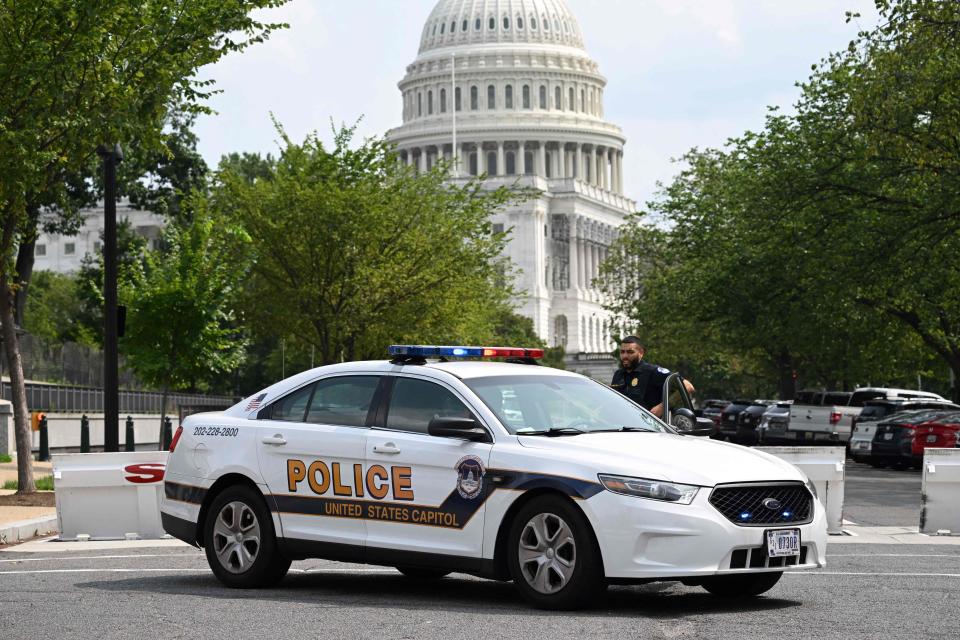The Founders were right. We’re better than this | Opinion
There’s the brutality of nature, the hunters and the hunted, the strong and the weak. People came along, and God rested on the seventh day. Then came the hard work: making decisions, abiding by those decisions, settling disputes and doing what is essentially human – moving past the raw power of the moment to do the morally informed right thing.
Do people thrive, share and support each other once the rules are relaxed? Are they tolerant of opposing viewpoints? Do they shut down meetings? For a while it was followers of the tea party shouting down their elected representatives. Then it was students on campus.
Up first: keeping people safe
Some sort of government exists wherever people live. The first task is always the same. Keep people safe, first from others and then, regrettably, from each other. That means surrendering the legitimate use of force and authority. The first government may have been no more than the strongest person with the biggest club.

Disputes have to be settled. ‘You took my sheep.” “No, she was on my property.” “What? That's not your property.” Then comes a definition of what is public and what is private, the provision of services and creating the set of rules that undergirds it all. And so it goes.
The last couple of years have been about a series of social/political experiments on the most fundamental duty of any government – basic safety. Reduce the number of officers? Frame police as occupiers rather than protectors? Create some sort of “people’s zone” in Seattle?
Reality is a merciless taskmaster. No peoples’ paradise emerged. This hurts everybody, especially the most vulnerable. In Oakland , California, the NAACP is demanding more police. It now goes without saying that this policing has to be done right – fair, responsive and respectful.
People have been thinking about this for thousands of years. Take Adam and Eve, or in Islam, Fitra. Man and woman were born into a perfect state of nature. They made poor choices, disobeyed God and bore consequences. Free will inevitably begets bad choices
Choose your philosopher
The nature of humankind is the enduring question. Are we basically reasonable, subject to compromise and able to move past self-interest, or are we fundamentally selfish and prone to violence to get what we want without much regard for the other? How do we act when our behavior is not constrained? In short, take any reasonably large assemblage of humans and ship them to an island with no rules. What happens?
Hear more Tennessee voices: Get the weekly opinion newsletter for insightful and thought-provoking columns.
Classic philosophers started their musings with the natural state of affairs. The state of nature's all-star team is Hobbes, Locke and Rousseau. They’re no less relevant today. Hobbes was the most pessimistic. “Life is nasty, brutish and short.” People turn to an autocrat to keep order at all costs. Out of necessity, a ruler was needed.
Locke was much more optimistic. People are equal in the state of nature. They’re capable of self-government. People had fundamental rights those in authority had to respect. Locke believed private property rights were key. Rousseau believed humans had a natural goodness, private property caused inequality and people had a natural right to revolt.
American political institutions reflect Locke’s view. We’re able to govern ourselves through institutions. Governing is about making compromises, creating laws, abiding by those laws and respecting property. Not only is an autocracy not necessary. It’s to be avoided. Power is to be diffused, not so much enabled.
As if on cue, a four-times indicted ex-president waits in the wings more than happy to step into the chief autocrat role after trying to hold on to power by denying electoral outcomes. Accepting legitimate election results is non-negotiable. If institutions fail to keep us safe, people will eventually give up and opt for a Hobbesean tyrant.
For Locke to be right, Hobbes had to be wrong. We humans are better than this.
William Lyons is Director of Policy Partnerships for the Howard H. Baker Jr. School of Public Policy and Public Affairs and Professor Emeritus of Political Science at the University of Tennessee. He also served as Chief Policy Officer for Knoxville Mayors Bill Haslam, Daniel Brown and Madeline Rogero.
The views and opinions expressed are those of the author and do not necessarily reflect the official policy or position of the Howard Baker Jr. Center for Public Policy or the University of Tennessee.
This article originally appeared on Knoxville News Sentinel: Opinion: The Founders were right. We’re better than this

